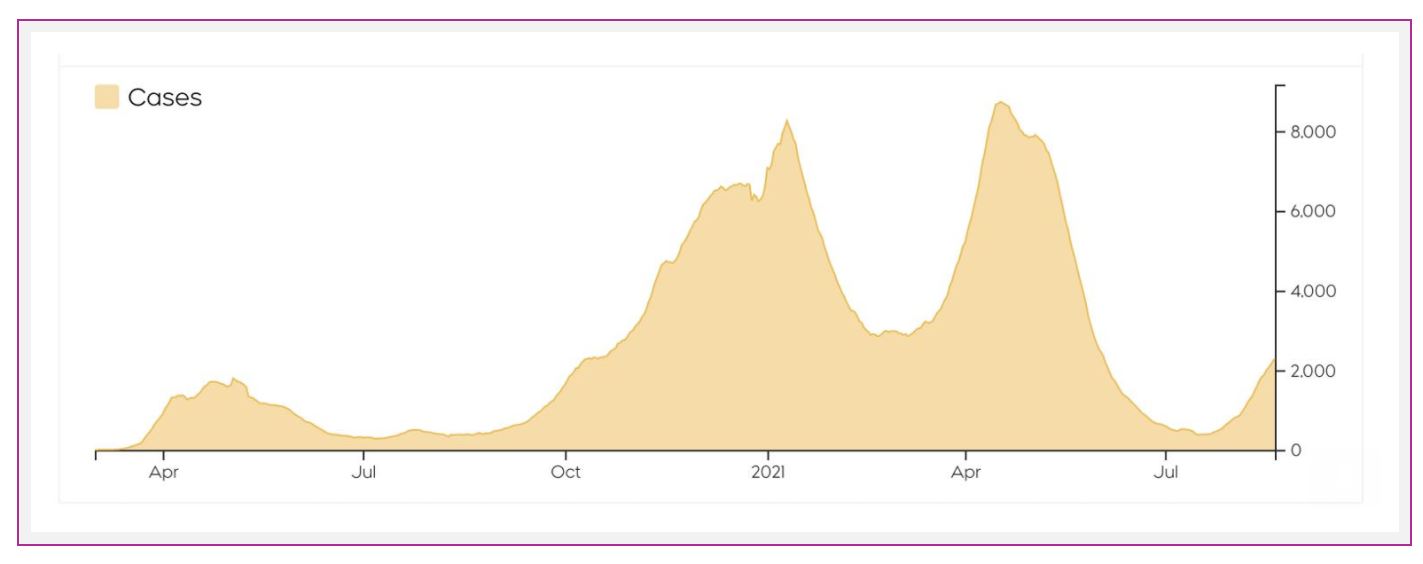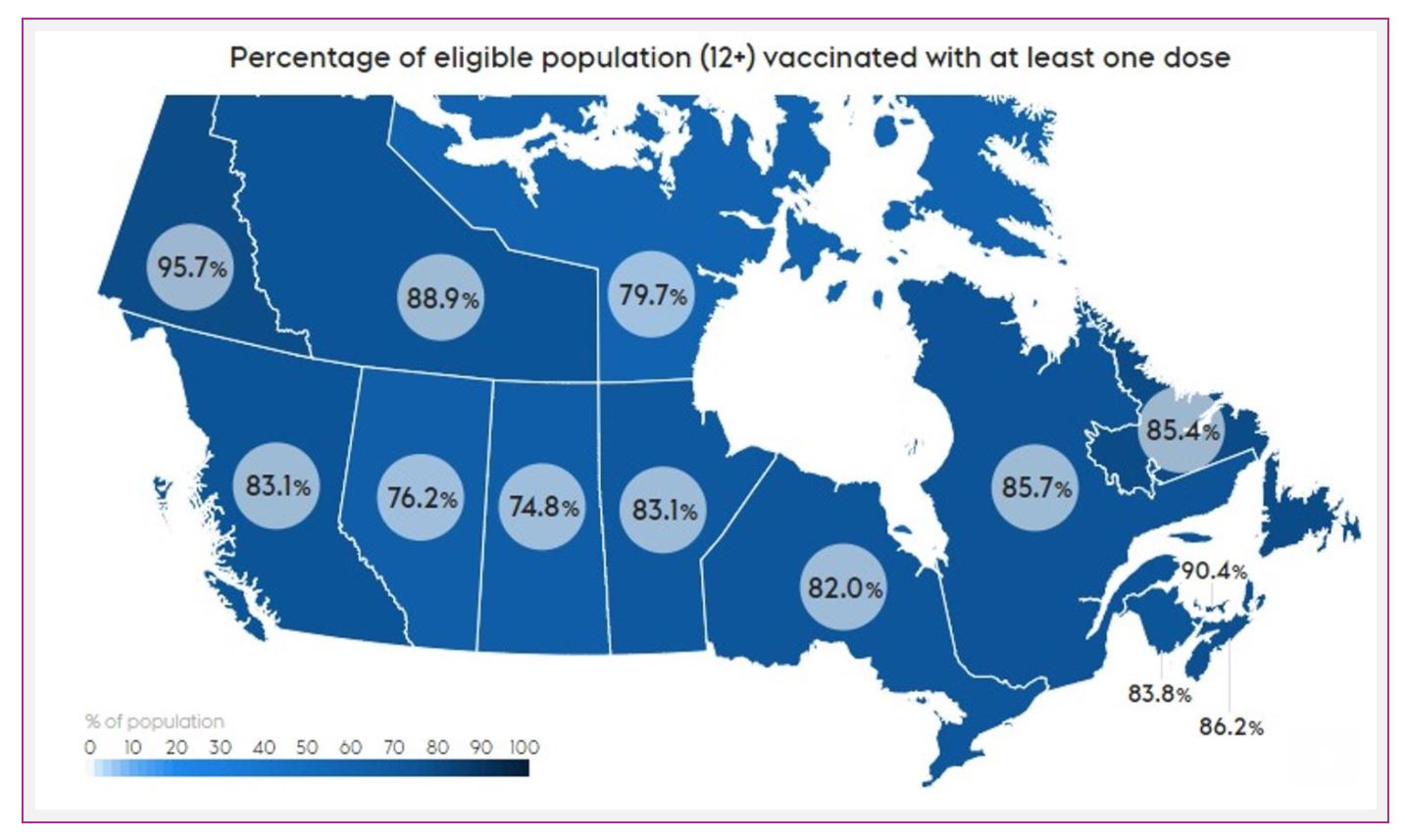Researchers analyzed 6280 households in Ontario and found that kids aged 0 to 3 years had the highest likelihood of passing on COVID-19. Children aged 4 to 8 years and 9 to 13 years also had higher odds of transmission than the oldest kids.
Hello Kidcrew Friends!
Welcome to another COVID update.
I sure wish there wasn’t anything more to talk about on this topic. But alas.
I received so much lovely feedback this week on the newsletters. I am thrilled that these updates help inform and educate you, and I greatly appreciate your comments and kind words. Please continue to share with family and friends who may benefit from them.
As we do each week, we will review the bad news, the good news, the most common questions of the week, and my silver lining.
Dr. Dina, what’s the bad news?
There have been over 210 MILLION cases of COVID-19 reported worldwide and over 4.4 MILLION deaths.
In Canada, we have seen almost 1.5 MILLION cases and nearly 27,000 deaths.
The United States has extended travel restrictions on non-essential travel from Canada and Mexico until September 21 to minimize the spread of Delta. Ironically, it is the U.S we need to be scared of.

Cases of COVID-19 are rising sharply in Canada, particularly compared to last summer. Provinces out West, which opened up sooner than Ontario, are seeing the sharpest rise. British Columbia had 700 new cases a day last week, and Ontario had 500-600. In Alberta, hospitals and ICU admissions have increased significantly. Alberta is finding an increasing number of pregnant people becoming unwell and requiring hospitalization, and those that are unvaccinated are being urged to get their vaccines.
Ontario has halted further reopening plans, and officials warn of a ‘difficult fall and winter.’
The vast majority of hospitalized patients are unvaccinated.
Last week, the Canadian Institute for Health Information reported that almost 100,000 health care workers were diagnosed with COVID-19 in the first five months of 2021. As a result, many healthcare providers across the country (and plenty in the U.S. and other countries) feel stretched thin and worry about their safety and patient safety.
Ontario announced last week that staff and students will need to be masked, and school-based vaccine clinics will become available to reach unvaccinated youth.
Maple Leaf Sports & Entertainment venues across Canada will require proof of vaccination or a negative test for event staff, employees, and guests. Banks, including TD and RBC, are also mandating vaccines for employees to return to the office.
Premier Ford even expelled a member of his caucus for refusing to get the vaccine last week.
Are young children more likely to transmit COVID-19?
According to new research, yes.
Researchers analyzed 6280 households in Ontario from June to December 2020, where only one person contracted COVID-19 under 18. 27% of these households had secondary transmissions, where at least one other person in the home became infected within two weeks of the initial case.
The original infected children were divided into four groups (age 0–3, 4–8, 9–13, and 14–17). Kids aged 0 to 3 years had the highest likelihood of passing on COVID-19. Children aged 4 to 8 years and 9 to 13 years also had higher odds of transmission than the oldest kids. The results demonstrate that younger kids may be more likely to transmit the virus than older kids and these kids are currently not eligible for vaccination.
What’s the good news?
Almost 82% of eligible (12 years +) Canadians have received a first COVID-19 vaccine dose, and 71% are fully vaccinated.
This contrasts with the worldwide data. 4.8 BILLION (seriously, BILLION) vaccines have been given worldwide, representing 32% of the WORLD’S population having received their first dose, and 24% have been fully vaccinated.

Questions of the week
Is Ontario Mandating Vaccines in High-Risk Settings?
Last week, the Ontario Chief Medical Officer of Health mandated hospitals and home and community care service providers to have a COVID-19 vaccination policy for staff, employees, staff, students, and volunteers. As well, ambulance services must have a COVID-19 vaccination policy for paramedics.
These directives serve to protect vulnerable patients and staff in high-risk healthcare settings.
The policy must be in effect no later than September 7, 2021. In addition, it requires that individuals provide proof of one of the following:
- Complete vaccination against COVID-19,
- A medical reason for not being vaccinated against COVID-19, or
- The completion of a COVID-19 vaccination education series.
According to the new requirements, individuals who are not fully vaccinated will be screened with regular antigen testing.
What are the COVID-19 vaccine medical exemptions?
According to the Ministry of Health, there are limited medical exemptions:
- AstraZeneca is contraindicated for patients with previous thrombosis with thrombocytopenia after receiving an AstraZeneca vaccine, or a history of episodes of capillary leak syndrome.
- An allergy to any vaccine ingredients or components of its container.
- Patients with a severe allergy to any of the vaccine ingredients (such as polyethylene glycol, tromethamine, and polysorbate) or who had a severe reaction to their first dose should be referred to an allergist to determine if the vaccine can be provided under controlled conditions.
- Individuals diagnosed with myocarditis or pericarditis after their first dose of the Pfizer or Moderna COVID-19 vaccine should wait to receive their second dose until more information is available.
Who will receive third doses of the COVID-19 vaccine?
The Ministry of Health announced last week that third doses will be offered a minimum of eight weeks after the second dose to the following vulnerable populations:
- Transplant recipients, including solid organ transplant and hematopoietic stem cell transplants.
- Patients with hematological cancers on active treatment (chemotherapy, targeted therapies, immunotherapy).
- Patients on an anti-CD20 agent (such as rituximab, ocrelizumab, and ofatumumab). These medicines are commonly used for multiple sclerosis, rheumatoid arthritis, leukemia, and lymphoma.
- Residents of high-risk congregate settings, including long-term care homes, higher-risk retirement homes, and First Nations eldercare lodges. These individuals will receive a third vaccine dose a minimum of five months after the second dose. In addition, patients who are soon to be transferred to one of these settings will also be offered a third dose.
Which kids can get the COVID-19 vaccine so far?
Last week, the Ontario Ministry of Health stated that kids born in 2009 (12 years of age already or turning 12 in 2021) can now receive a Pfizer vaccine. In Alberta and British Columbia, kids born in 2009 have been offered the vaccine for several months with no identified risks. However, the studies of vaccine efficacy and safety in kids age six months to 11 years have not been reported yet. (Don’t worry, I will be sure to update you as soon as I know more!)
Be kind, patient, and compassionate to your health care provider.
Last week, the Ontario Medical Association Burnout Task Force reported that 73% of physicians surveyed experienced burnout in 2021, up from 66% in the already crummy year 2020.
Remember, many of your healthcare providers are parents, caregivers, children, and loved ones too. They have the same burdens as you, the same stresses and feelings of overwhelm as you, PLUS they are trying to keep you and your family healthy and safe.
Let’s all be kind to one another 😊
My silver lining of the week
After being at home since March 2020, our eldest two kids were off at sleep away camp for four weeks and returned home last week.
They had a blast and were so thrilled to be with friends, be outside, and get a ton of non-screen activity.
Though the start of school is approaching so quickly, they, and we, are savoring the last bit of summer, enjoying the sun and our loved ones, and remembering to take the time to smell the roses.
I hope your family is well too and enjoying the warmth!
Have a safe and healthy week, friends!

Dina is a wife, mother of 4, and adrenaline junky. She loves to share children’s health information from her professional and personal experience. More About Dr Dina.


![[Dr. Dina News] IMPORTANT UPDATE re. VIRTUAL CARE](https://drdina.ca/wp-content/uploads/2021/01/dr-dina-kulik-kids-and-virtual-care-1a-400x250.jpg)
![[Dr. Dina News] COVID-19 Vaccine for Infants and Young Children.](https://drdina.ca/wp-content/uploads/2021/04/dr-dina-kulik-kids-and-vaccines-400x250.jpg)
![[Dr. Dina News] COVID-19 Vaccine for Infants and Young Children.](https://drdina.ca/wp-content/uploads/2022/04/DRD-1-400x250.jpg)






